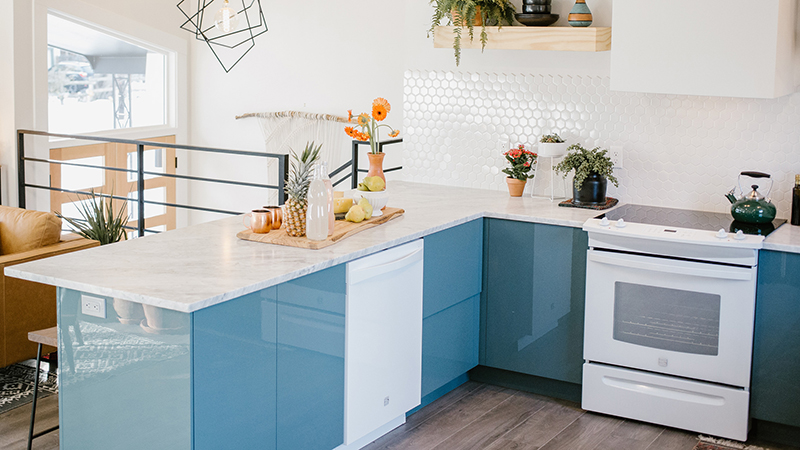Brighten it, expand it, organize it — whatever it needs, your kitchen is an update away from ideal.
Your kitchen is likely the most loved room in your home — and the wear and tear proves it. It’s the hangout for hungry teenagers, the conversation station during the holidays and the catch-up room after a busy workday.
A functional and appealing kitchen is important not only for your family but for your guests, too. After all, a delicious meal is only so appealing in a messy and cluttered kitchen.
Here are five signs that your kitchen may need an upgrade.
1. Outdated appliances
Perhaps they were there when you moved in, or maybe they came with you decades ago when you bought the home. Either way,
outdated appliances are usually less attractive and drain more energy than newer models on the market.
Consider their safety, too. If you have to press a secret combination of buttons and chant a spell to light your range, it’s time to upgrade to newer, safer appliances.
When you do upgrade, consult a professional electrician to make sure everything is wired properly and up to code.
2. Damage and wear
Nobody expects your kitchen to stay in like-new condition forever, but damage beyond normal wear and tear needs addressing.
Water damage from a leaking fridge or dishwasher can cause mold on and underneath the flooring or peeling on the countertops, floors and walls, depending on the materials.
Cracked, peeling or chipped countertops and floors are prime spots for dangerous bacteria to reside — and hide from cleaning supplies. Even clean counters and floors with stains can cause your guests to think twice when they’re invited over a second time.
Upgrading to
newer counters made from a durable material like granite is a good investment that can last practically a lifetime.
3. Not enough counter space
If your counters are covered with appliances, utensils and food, you need an upgrade. Ideally, your counters should always be clutter-free, and everything should have an easily accessible place.
Adding more counter space doesn’t have to mean tearing down walls and rehauling the layout. If your floor plan allows, installing an island is a great and relatively simple way to add counter space.
If it’s not the space but the clutter that’s the problem, larger cabinets or deeper drawers will increase storage so you can reclaim your counters.
4. You can’t find anything
Do you look forward to cooking or dread the time commitment? How much time is actually spent on food prep versus searching for the right utensils, appliances and dishware?
A disorganized kitchen makes it difficult to find anything, which can cause anxiety over cooking and render your kitchen useless. A fresh design and
organization strategy is a worthy investment to get you eating in your own home again and enjoying the cooking process.
5. Your house won’t sell
Saving for your new home is often the priority when moving. But upgrading your current kitchen before you go is an investment that may very well pay for itself.
Home shoppers often gravitate first toward the kitchen. So, if you’ve been having trouble selling your home and the kitchen’s outdated — that could be the reason.
Buyers are usually more interested in move-in ready homes that require little or no remodeling. A more appealing, upgraded kitchen can be a motivating factor for buyers, hopefully resulting in less time on the market and a better selling price.
Make the necessary upgrades when the time comes, and your kitchen will reclaim its rightful place as the heart of the home.
Photos by Timothy Riley and Luke Caldwell.
























